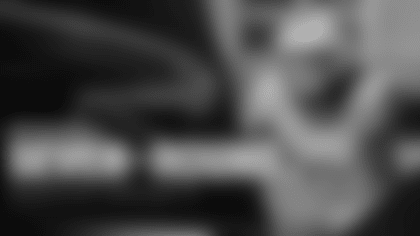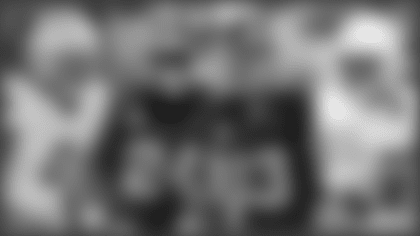READY FOR THE BYE — If you read my postgame column following the Falcons' 38-6 loss to the Denver Broncos Sunday evening, you know I spent a lot of time detailing issues that have persisted through the Falcons' recent losses, included the two in back-to-back weeks.
The bye week is a natural time for self-scouting, re-evaluation and changes. However, it's how you use that time that matters. In his Monday afternoon press conference, head coach Raheem Morris was asked questions related to his strategy heading into the bye week and how best to use it.
The Falcons have issues that need fixing if they want to be a contender in the postseason. Heck, if they want to be in the postseason. But a bye week — while important — can only do so much. So, in the spirit of prioritization, let's take a look at the three buckets of issues I have deemed fixable for this team. Because that's the kicker, right? What is fixable? What is realistic?
Is it realistic to think pass rush productivity is magically going to change after a bye week? What about finishing drives offensively in the red zone? Third downs — on both sides? Who's to say? Well, after 11 games, it is fair to say that — to a certain extent — the team is what they are with the resume they have put forth in this sample size. So, I ask again: What are realistic fixes for a team with high potential, but middling output? There are three categories we can look to.
Health. Penalties. Effort.
It's these three buckets that have the most potential to have positive effects in the problem areas listed above. They may not change them significantly, but they could change them enough to put the team in a better position in games.

Health is the easiest one to quantify because it stands to reason the Falcons will be in a much better position health-wise after a week off. Regardless of which unit of this team you're looking at, injuries are stacking up and lingering. I don't need to go into great detail seeing as Amna Subhan did so already. But suffice to say, a week away will be the time the Falcons need to get key members of their team back in action, which — in theory — should help seeing as you're talking about key starters and rotational depth, particularly defensively.
Health is a problem easily fixed. It is in this case at least, based on the nature and prognosis of a lot of these injuries.
Limiting penalties is a bit more difficult, but it's an issue offensively that has plagued the Falcons from their first loss to the Steelers in Week 1 to their most recent loss to the Broncos in Week 11. Too often the Falcons are penalized in the red zone. I can't tell you off the top of my head how many Bijan Robinson plays have been wiped away because of a holding call here or an illegal shift there. I imagine, though, that its a lot. I'm taking note of at least four such instances in my notebook just on a quick glance.
I'd go as far as to say we'd all feel a lot different about this offense if penalties didn't halt promising drives time and time again, like it did early in the losses to both the Saints and Broncos the last two weeks.
This offense has shown us that when it's clean, it's productive. When it's not, it's disjointed. And in losses, it's the undercurrent of these ill-timed penalties that cannot be overcome. It's the difference in starts and stops, and penalties are fixable.
You'll live with them here and there, but you can't die by them any longer.
I'll add, too, that when it comes to penalties, they are subjective at times, yes, but they are also a marker of discipline and fundamentals, both of which I deem to be evolving entities. Meaning this falls into a priority bucket of "fixable issues facing the Falcons."
Of the three buckets, though, the one that is the proverbial elephant in the room, the one that is the hardest to quantify is effort.
After the game, Morris was candid in saying the Broncos beat the Falcons because they played with better physicality and effort. He doubled-down on this notion Monday, asking: "What does being out-effort'd look like?"
"It's when a guy is able to score on a screen pass because you can't catch someone on a turn-and-run opportunity to knock the ball out and get them on the ground," Morris said in reference to the Broncos' end-of-half touchdown play on third and goal from the 12-yard line that put them up 21-6 at halftime.
When your getting beat up front, Morris added, that's another sign of "getting out-effort'd." Not being able to get to the last block to spring a play loose, too.
"And we got out-effort'd yesterday," Morris concluded. "I have to be honest. I have to tell (the media) the truth. I have to tell our team the truth that that is what happened yesterday."
It's something that makes coaches furious, but it is correctable.
The thing with correcting effort, though, is that there often times has to be a want-to mentality towards a fix. From the outside looking in, this feels like a team that wants to, which is a step in the right direction.
And despite the list of things that need to be fixed — whether realistic or not in the time allotted by a bye week — the Falcons are in the hunt. But it'll be up to them to decide who they want to be: predator or prey.
"Everything is right in front of us," Morris said, "and I think that's the most important thing for everybody to know."
Immerse yourself in the subtle drama of the Falcons-Broncos meetup at Empower Field at Mile High with our monochrome snapshots from Week 11, shot on Sony.

Atlanta Falcons defensive lineman Grady Jarrett #97 arrives before the Week 11 Game against the Denver Broncos at Empower Field at Mile High in Denver, Colorado on Sunday, November 17, 2024. (Photo by Shanna Lockwood/Atlanta Falcons)

Atlanta Falcons offensive lineman Matthew Bergeron #65 arrives before the Week 11 Game against the Denver Broncos at Empower Field at Mile High in Denver, Colorado on Sunday, November 17, 2024. (Photo by Shanna Lockwood/Atlanta Falcons)

Atlanta Falcons safety Justin Simmons #31 signs the player hall of fame wall before the Week 11 Game against the Denver Broncos at Empower Field at Mile High in Denver, Colorado on Sunday, November 17, 2024. (Photo by Shanna Lockwood/Atlanta Falcons)

Atlanta Falcons cornerback A.J. Terrell #24 in the locker room before the Week 11 Game against the Denver Broncos at Empower Field at Mile High in Denver, Colorado on Sunday, November 17, 2024. (Photo by Shanna Lockwood/Atlanta Falcons)

Atlanta Falcons linebacker Kaden Elliss #55 and his brother after the Week 11 Game against the Denver Broncos at Empower Field at Mile High in Denver, Colorado on Sunday, November 17, 2024. (Photo by Shanna Lockwood/Atlanta Falcons)
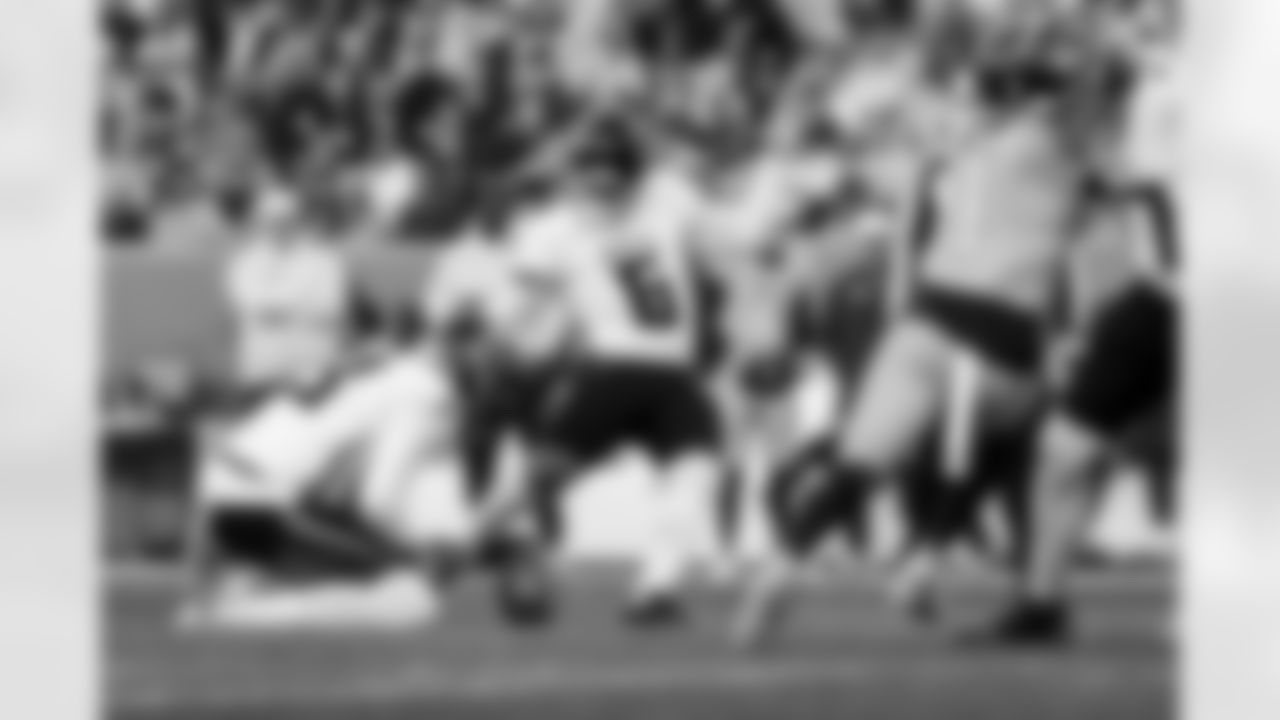
Atlanta Falcons kicker Younghoe Koo #6 makes a field goal during the Week 11 Game against the Denver Broncos at Empower Field at Mile High in Denver, Colorado on Sunday, November 17, 2024. (Photo by Tyler Schank/Atlanta Falcons)

Atlanta Falcons wide receiver Drake London #5 during the National Anthem before the Week 11 Game against the Denver Broncos at Empower Field at Mile High in Denver, Colorado on Sunday, November 17, 2024. (Photo by Tyler Schank/Atlanta Falcons)

Atlanta Falcons linebacker Kaden Elliss #55 and his brother after the Week 11 Game against the Denver Broncos at Empower Field at Mile High in Denver, Colorado on Sunday, November 17, 2024. (Photo by Shanna Lockwood/Atlanta Falcons)

Atlanta Falcons running back Bijan Robinson #7 during the Week 11 Game against the Denver Broncos at Empower Field at Mile High in Denver, Colorado on Sunday, November 17, 2024. (Photo by Tyler Schank/Atlanta Falcons)

Atlanta Falcons offense lines up during the Week 11 Game against the Denver Broncos at Empower Field at Mile High in Denver, Colorado on Sunday, November 17, 2024. (Photo by Tyler Schank/Atlanta Falcons)

Atlanta Falcons defensive lineman Grady Jarrett #97 on the sideline before the Week 11 Game against the Denver Broncos at Empower Field at Mile High in Denver, Colorado on Sunday, November 17, 2024. (Photo by Shanna Lockwood/Atlanta Falcons)

Atlanta Falcons running back Avery Williams #26 walks out to warm ups before the Week 11 Game against the Denver Broncos at Empower Field at Mile High in Denver, Colorado on Sunday, November 17, 2024. (Photo by Brandon Magnus/Atlanta Falcons)

Atlanta Falcons players walk out before the Week 11 Game against the Denver Broncos at Empower Field at Mile High in Denver, Colorado on Sunday, November 17, 2024. (Photo by Tyler Schank/Atlanta Falcons)

Atlanta Falcons players huddle before the Week 11 Game against the Denver Broncos at Empower Field at Mile High in Denver, Colorado on Sunday, November 17, 2024. (Photo by Brandon Magnus/Atlanta Falcons)

Atlanta Falcons owner Arthur Blank walks out of the tunnel before the Week 11 Game against the Denver Broncos at Empower Field at Mile High in Denver, Colorado on Sunday, November 17, 2024. (Photo by Brandon Magnus/Atlanta Falcons)

Atlanta Falcons guard Chris Lindstrom #63 warms up before the Week 11 Game against the Denver Broncos at Empower Field at Mile High in Denver, Colorado on Sunday, November 17, 2024. (Photo by Brandon Magnus/Atlanta Falcons)

Atlanta Falcons offensive lineman Matthew Bergeron #65 warms up before the Week 11 Game against the Denver Broncos at Empower Field at Mile High in Denver, Colorado on Sunday, November 17, 2024. (Photo by Brandon Magnus/Atlanta Falcons)

Atlanta Falcons kicker Younghoe Koo #6 kicks a field goal during the Week 11 Game against the Denver Broncos at Empower Field at Mile High in Denver, Colorado on Sunday, November 17, 2024. (Photo by Shanna Lockwood/Atlanta Falcons)

Atlanta Falcons defensive back Clark Phillips III #22 during the Week 11 Game against the Denver Broncos at Empower Field at Mile High in Denver, Colorado on Sunday, November 17, 2024. (Photo by Brandon Magnus/Atlanta Falcons)

Atlanta Falcons running back Bijan Robinson #7 carries the ball during the Week 11 Game against the Denver Broncos at Empower Field at Mile High in Denver, Colorado on Sunday, November 17, 2024. (Photo by Brandon Magnus/Atlanta Falcons)

Atlanta Falcons quarterback Kirk Cousins #18 during the Week 11 Game against the Denver Broncos at Empower Field at Mile High in Denver, Colorado on Sunday, November 17, 2024. (Photo by Brandon Magnus/Atlanta Falcons)

Atlanta Falcons safety Jessie Bates III #3 and Bo Nix after the Week 11 Game against the Denver Broncos at Empower Field at Mile High in Denver, Colorado on Sunday, November 17, 2024. (Photo by Brandon Magnus/Atlanta Falcons)

Atlanta Falcons wide receiver Drake London #5 during the Week 11 Game against the Denver Broncos at Empower Field at Mile High in Denver, Colorado on Sunday, November 17, 2024. (Photo by Brandon Magnus/Atlanta Falcons)
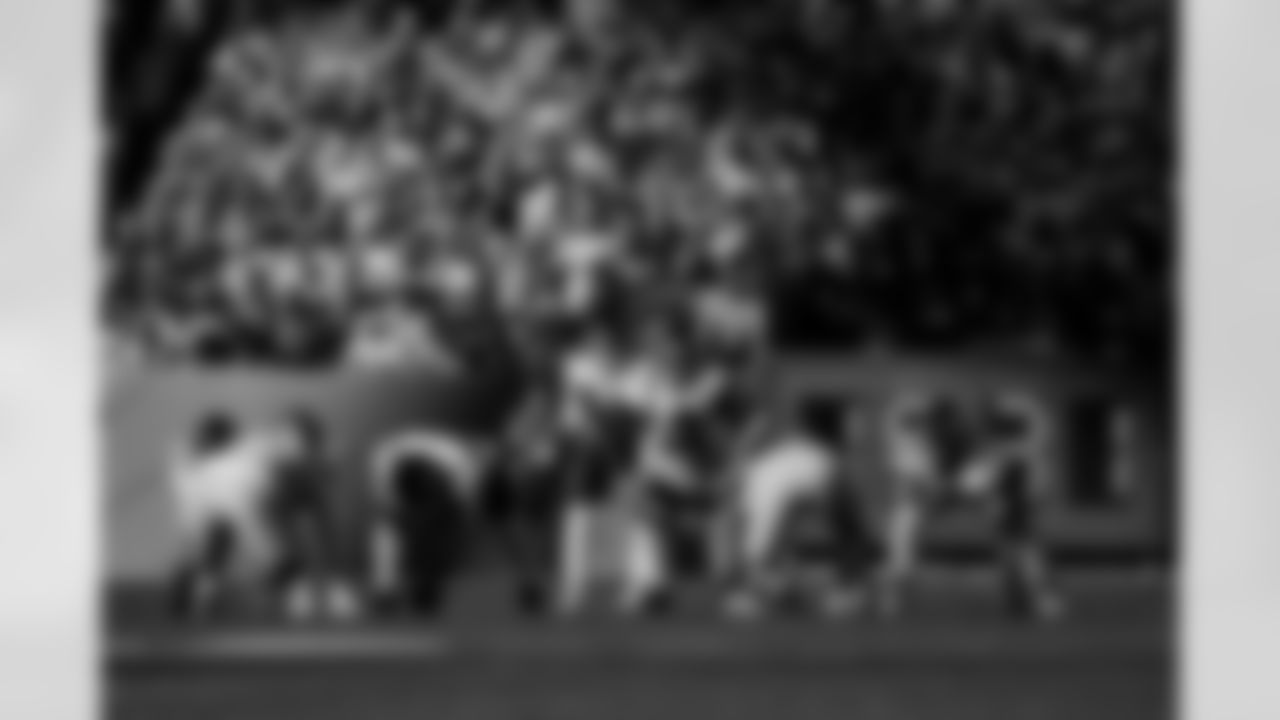
Atlanta Falcons offensive line during the Week 11 Game against the Denver Broncos at Empower Field at Mile High in Denver, Colorado on Sunday, November 17, 2024. (Photo by Shanna Lockwood/Atlanta Falcons)

Atlanta Falcons kicker Younghoe Koo #6 kicks a field goal during the Week 11 Game against the Denver Broncos at Empower Field at Mile High in Denver, Colorado on Sunday, November 17, 2024. (Photo by Shanna Lockwood/Atlanta Falcons)
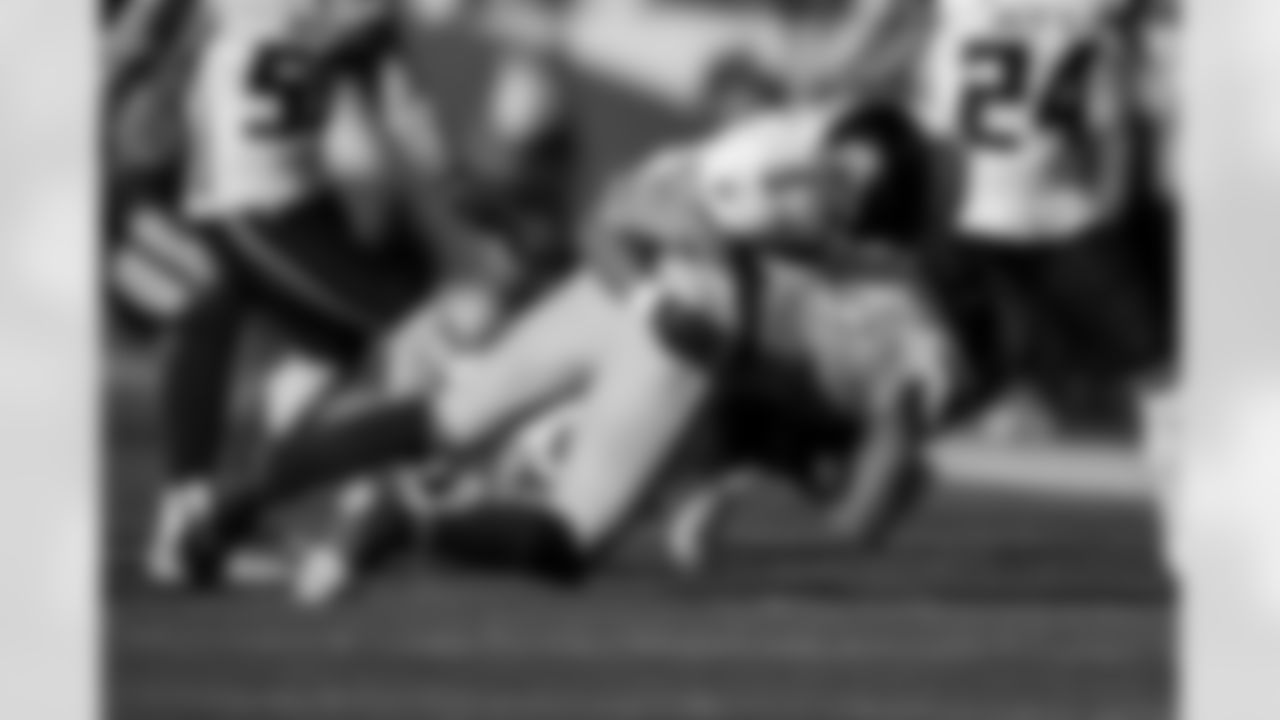
Atlanta Falcons safety Jessie Bates III #3 during the Week 11 Game against the Denver Broncos at Empower Field at Mile High in Denver, Colorado on Sunday, November 17, 2024. (Photo by Shanna Lockwood/Atlanta Falcons)

Atlanta Falcons tight end Ross Dwelley #85 carries the ball during the Week 11 Game against the Denver Broncos at Empower Field at Mile High in Denver, Colorado on Sunday, November 17, 2024. (Photo by Shanna Lockwood/Atlanta Falcons)
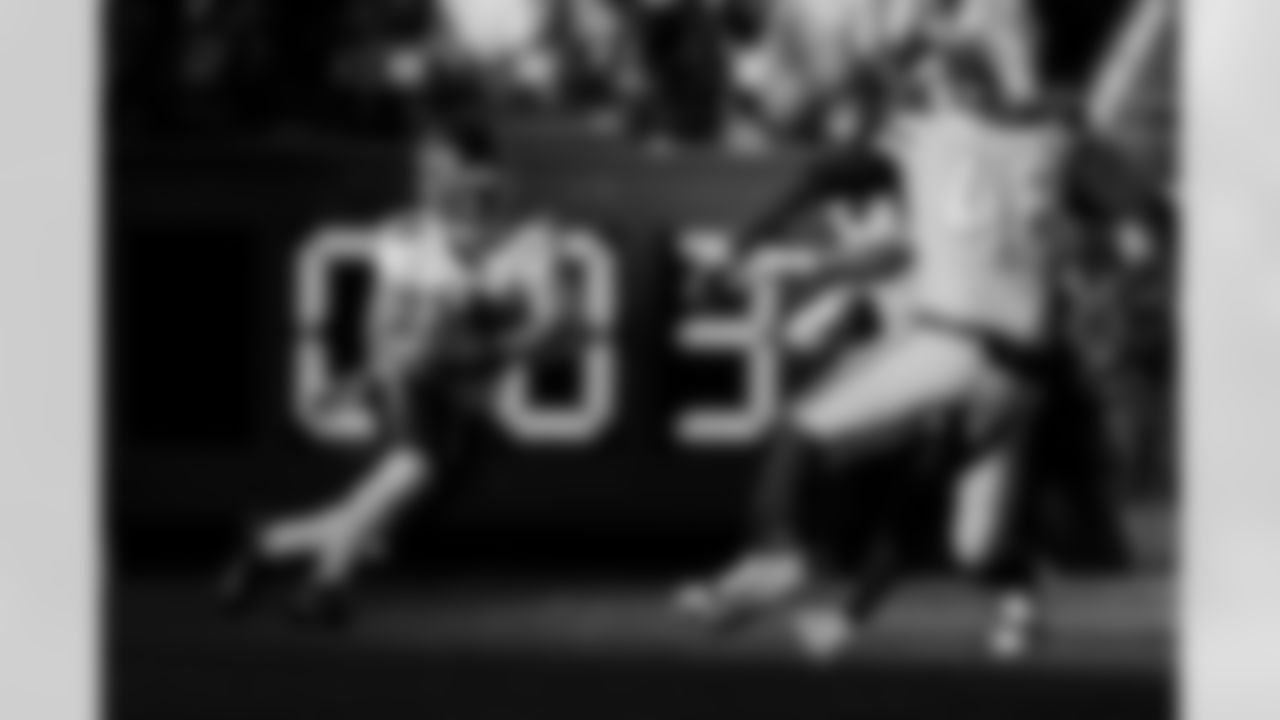
Atlanta Falcons running back Avery Williams #26 during the Week 11 Game against the Denver Broncos at Empower Field at Mile High in Denver, Colorado on Sunday, November 17, 2024. (Photo by Shanna Lockwood/Atlanta Falcons)

Atlanta Falcons running back Bijan Robinson #7 during the Week 11 Game against the Denver Broncos at Empower Field at Mile High in Denver, Colorado on Sunday, November 17, 2024. (Photo by Shanna Lockwood/Atlanta Falcons)

Atlanta Falcons head coach Raheem Morris during the Week 11 Game against the Denver Broncos at Empower Field at Mile High in Denver, Colorado on Sunday, November 17, 2024. (Photo by Shanna Lockwood/Atlanta Falcons)

Atlanta Falcons safety Jessie Bates III #3 in the locker room before the Week 11 Game against the Denver Broncos at Empower Field at Mile High in Denver, Colorado on Sunday, November 17, 2024. (Photo by Shanna Lockwood/Atlanta Falcons)
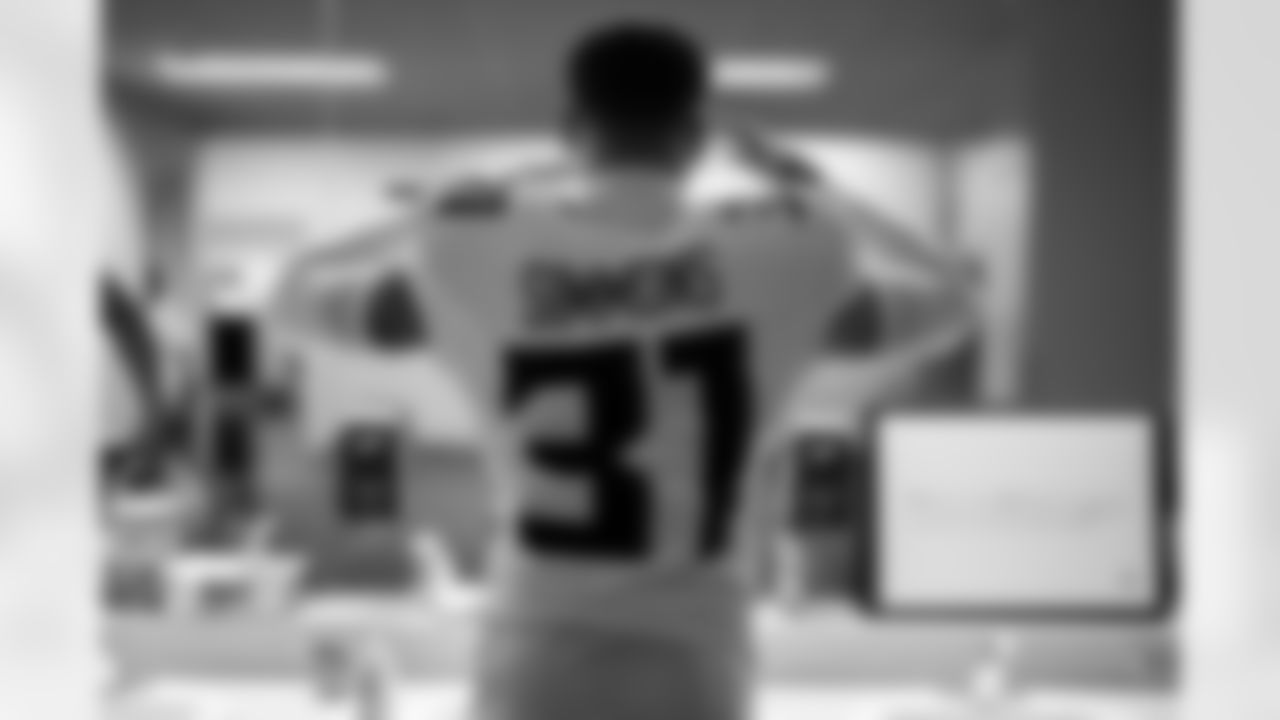
Atlanta Falcons safety Justin Simmons #31 in the locker room before the Week 11 Game against the Denver Broncos at Empower Field at Mile High in Denver, Colorado on Sunday, November 17, 2024. (Photo by Shanna Lockwood/Atlanta Falcons)








